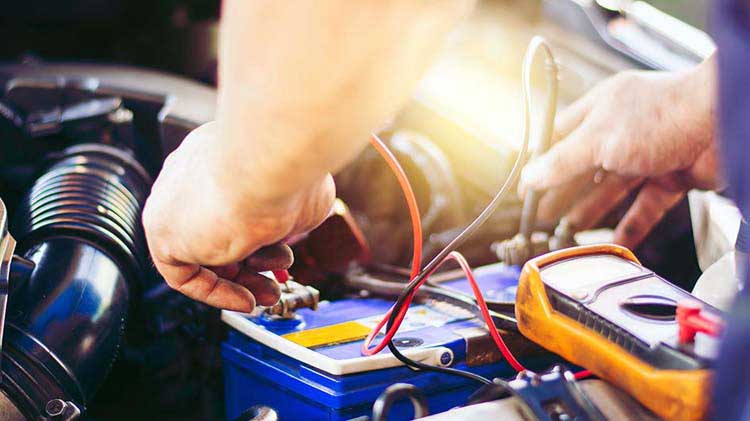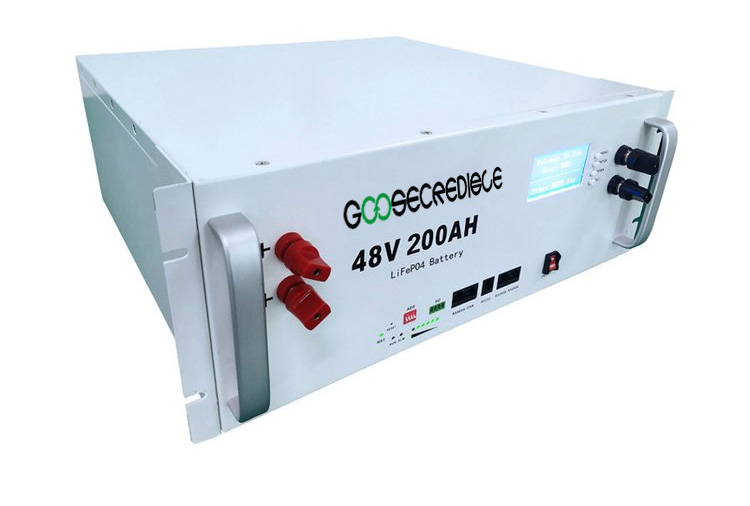Electric Vehicle Batteries: Technical Core and Performance Characteristics
As a key component of electric vehicles, electric vehicle batteries have a significant impact on the performance, range and safety of electric vehicles. The following is a detailed introduction to some of the key technical points and performance characteristics of electric vehicle batteries:
Battery Type
Lithium-ion battery: The most common type of battery used in electric vehicles. Lithium-ion batteries have the advantages of high energy density, long cycle life, no memory effect, and low self-discharge. It can convert chemical energy into electrical energy through charging and discharging reactions, thus realizing efficient energy storage and release.
Battery Structure
Battery cells and modules: Electric vehicle batteries typically consist of multiple battery cells to form a module, and then the modules are connected in series or parallel to form a battery pack. The ionic conduction between the battery cells is achieved by electrolytes or solid electrolytes, thereby realizing the charging and discharging process of the battery.
Energy Density
Energy density is one of the key indicators for measuring battery performance, which determines the range of electric vehicles. Lithium-ion batteries have achieved higher energy densities through continuous improvements in positive and negative electrode materials and electrolyte formulations, but they still need to be continuously optimized to meet higher range requirements.
Battery Safety
The safety of electric vehicle batteries is critical. Safety regulations must be strictly adhered to during the production, use and recycling of batteries to prevent safety problems such as short circuits, overheating and leakage. The use of new materials such as solid electrolytes offers a new way to improve battery safety.
Cycle Life
Cycle life refers to the life of a battery during the charge and discharge cycle. High performance batteries should have a long cycle life to reduce the frequency and cost of battery replacement. Lithium-ion batteries have achieved high cycle life by optimizing material ratios and manufacturing processes.

Charge and Discharge Performance
The charge and discharge performance of electric vehicle batteries determines the charging speed and endurance of electric vehicles. Batteries should have faster charging speed and higher discharge efficiency to meet the needs of electric vehicles for fast charging and long driving. At the same time, batteries should also have stable charging and discharging performance to prevent performance from being affected by temperature changes or battery aging.
Battery Management System
The battery management system (BMS) is a critical component of electric vehicle batteries. It is responsible for monitoring battery status, controlling the charge and discharge process, protecting battery safety, and extending battery life. The BMS collects battery voltage, current, temperature and other parameters to monitor and intelligently manage the battery in real time to ensure that the battery is operating in the best possible condition.
Thermal Management
Electric vehicle batteries generate heat during operation that must be dissipated through a thermal management system. The thermal management system ensures that the battery operates within an appropriate temperature range using technologies such as liquid cooling, air cooling or phase change materials to prevent performance degradation or safety issues caused by excessive temperatures.
Battery Recycling and Environmental Protection
The recycling and environmental issues of electric vehicle batteries are receiving increasing attention. Used batteries contain a large amount of heavy metals and harmful substances that will pollute the environment if not handled properly. Therefore, the establishment of a complete battery recycling system and harmless treatment technology is the key to the sustainable development of electric vehicles.
In conclusion, electric vehicle batteries play an important role in the performance and safety of electric vehicles. By continuously optimizing battery technology, improving energy density, strengthening safety management and establishing a complete recycling system, we can better promote the development of the electric vehicle industry and contribute to the realization of green travel and sustainable development.
-
 Introduction: In today's fast-paced industrial world, where uninterrupted power supply is crucial, the need for efficient and reliable battery chargers cannot be overstated. Industrial battery chargers play a pivotal role in providing power solutions for a wide range of applications, from heavy machinery to backup power systems. This article aims to explore the importance of industrial battery chargers and how...اقرأ أكثر
Introduction: In today's fast-paced industrial world, where uninterrupted power supply is crucial, the need for efficient and reliable battery chargers cannot be overstated. Industrial battery chargers play a pivotal role in providing power solutions for a wide range of applications, from heavy machinery to backup power systems. This article aims to explore the importance of industrial battery chargers and how...اقرأ أكثر -
 Introduction: Golf carts have become a common mode of transportation in golf courses, retirement communities, and even some residential areas. These compact electric vehicles are not only convenient but also environmentally friendly. However, the performance and longevity of a golf cart heavily rely on the quality and maintenance of its battery. In this article, we will explore the importance of...اقرأ أكثر
Introduction: Golf carts have become a common mode of transportation in golf courses, retirement communities, and even some residential areas. These compact electric vehicles are not only convenient but also environmentally friendly. However, the performance and longevity of a golf cart heavily rely on the quality and maintenance of its battery. In this article, we will explore the importance of...اقرأ أكثر -
 For those who love to have outdoor adventures, a reliable power source is a must-have. In the past, people had to rely on gasoline generators to provide power when they were in the wilderness. However, the advent of emergency starter batteries has revolutionized the way we power our devices during an emergency situation. An emergency starter battery is a...اقرأ أكثر
For those who love to have outdoor adventures, a reliable power source is a must-have. In the past, people had to rely on gasoline generators to provide power when they were in the wilderness. However, the advent of emergency starter batteries has revolutionized the way we power our devices during an emergency situation. An emergency starter battery is a...اقرأ أكثر -
 To charge a Lithium Iron Phosphate (LiFePO4) battery, follow these general steps: Use a charger specifically designed for LiFePO4 batteries, as this type of battery has a different charging profile than other lithium-ion batteries. Connect the charger to the battery, making sure the polarity is correct. Set the charger to the appropriate charging voltage and current for your specific battery....اقرأ أكثر
To charge a Lithium Iron Phosphate (LiFePO4) battery, follow these general steps: Use a charger specifically designed for LiFePO4 batteries, as this type of battery has a different charging profile than other lithium-ion batteries. Connect the charger to the battery, making sure the polarity is correct. Set the charger to the appropriate charging voltage and current for your specific battery....اقرأ أكثر -
 Locomotives are powerful machines that play an essential role in transporting goods and people across vast distances. These engine-driven systems rely on complex machinery to turn their wheels and create the power necessary to maintain momentum. At the heart of this powerful system are the starter batteries that provide the initial charge to start this extensive machinery. In this article,...اقرأ أكثر
Locomotives are powerful machines that play an essential role in transporting goods and people across vast distances. These engine-driven systems rely on complex machinery to turn their wheels and create the power necessary to maintain momentum. At the heart of this powerful system are the starter batteries that provide the initial charge to start this extensive machinery. In this article,...اقرأ أكثر -
 As the world moves towards renewable energy sources, efficient energy storage becomes more important than ever. The High Capacity 12V 100Ah LiFePO4 Battery is a game changer in the world of energy storage. LiFePO4 batteries are a type of lithium-ion battery that use lithium iron phosphate as their cathode material. They are known for their high energy density, long...اقرأ أكثر
As the world moves towards renewable energy sources, efficient energy storage becomes more important than ever. The High Capacity 12V 100Ah LiFePO4 Battery is a game changer in the world of energy storage. LiFePO4 batteries are a type of lithium-ion battery that use lithium iron phosphate as their cathode material. They are known for their high energy density, long...اقرأ أكثر -
 The battery industry is often referred to as the backbone of modern technology, as it powers numerous devices that have become integral parts of our daily lives. From smartphones to electric vehicles, batteries have revolutionized the way we live and interact with the world around us. With advancements in technology and growing concerns about environmental sustainability, the battery industry is...اقرأ أكثر
The battery industry is often referred to as the backbone of modern technology, as it powers numerous devices that have become integral parts of our daily lives. From smartphones to electric vehicles, batteries have revolutionized the way we live and interact with the world around us. With advancements in technology and growing concerns about environmental sustainability, the battery industry is...اقرأ أكثر

